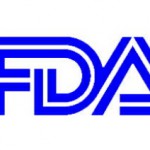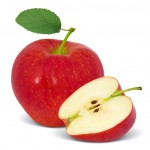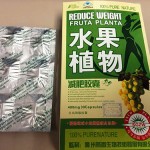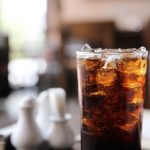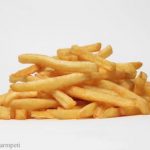The Food and Drug Administration announced this week that they are banning three chemicals linked to cancer from use in pizza boxes, microwave popcorn bags, sandwich wrappers, and other food packaging, known as food-contact substances (FCSs). This ban, which takes place February 1, 2016, comes more than a decade after consumer advocates raised concerns about the carcinogenicity of these compounds. Environmental Working Group and other groups such as Center for Food Safety, Center for Science in the Public Interest, Children's Environmental Health Network, and Natural Resources Defense Council, have been petitioning the FDA for years to prohibit these substances from food packages. EWG President Ken Cook said in a statement, "industrial chemicals that pollute people's blood clearly have … [Read more...]
Use High Heat to Cook Meat? Rethink That Technique
A new study published in the journal Cancer has found that cooking beef at high temperatures may lead to an increased risk of developing kidney cancer. Carcinogenic compounds are created in the meat when grilled, barbecued, and pan-fried. The study was conducted at the University of Texas MD Anderson Cancer Center. Renal cell carcinoma affects 60,000 new patients every year. About 14,000 people die of this illness every year in the Untied States. The incidence of this type of cancer has been increasing for decades. Dr. Stephanie Melkonian, Epidemiology postdoctoral fellow and lead author of the study said, "this study encourages us to look not only at what foods we're eating, but also how we're preparing those foods." When you cook meat with high temperature, causing charring on the … [Read more...]
WHO Classifies 2,4-D Herbicide as Possible Carcinogen
The Center for Food Safety has announced that the World Health Organization (WHO) has determined that the herbicide 2,4-D, used in Dow Chemical's "Enlist Weed Control System", is "possibly carcinogenic to humans." Enlist corn and soybean seeds are genetically engineered to resist this herbicide, which means it can be sprayed on crops and won't kill them. Enlist is comprised of glyphosate, the chemical used in Roundup, a well-known herbicide, and 2,4-D, which was an ingredient in Agent Orange, an herbicide used during the Vietnam war. Glyphosate has also been determined as "possibly carcinogenic." Andrew Kimbrell, executive director of Center for Food Safety, said in a statement, "this last thing we need is genetically engineered crops that dramatically increase the spraying of … [Read more...]
Groups Urge WHO to Set Safety Standards for Glyphosate
A coalition of groups, including Food & Water Watch, Natural Resources Defense Council (NRDC), and Friends of the Earth are using the World Health Organization (WHO) to set safety standard for the herbicide glyphosate, found in RoundUp and other chemicals, that has been classified as carcinogenic. In a letter to the WHO, the coalition raised concerns about conflicts of interest on an expert advisory panel that could review the cancer classification. Three of the eight panel members have "financial and professional ties to the chemical industry, including Monsanto, the largest producer of glyphosate," according to Food & Water Watch. NRDC Health Program Director Erik Olson said in a statement, "The WHO is highly respected for protecting public health around the world,d and it … [Read more...]
EWG Looks at EU Banned Chemical Used on U.S. Apples
Environmental Working Group is asking the U.S. government to put a stop to a chemical used on non-organic apples grown in America because its makers in Europe could not show it didn't pose a rise to human health. That analysis found that the chemical, called diphenylamine, known as DPA, is used to coat apples during storage to prevent "storage scald", brown or black patches, since the fruit is only harvested once a year. A study conducted by the USDA in 2010 found that 80% of non-organic apples were coated with DPA. American apple growers say that DPA is a "benign growth regulator", but European officials have banned the use of DPA on apples and other fruit since 2012. Apples are one of the "dirty dozen" fruits and veggies EWG suggests consumers should avoid when grown conventionally … [Read more...]
Weight Loss Supplement Fruta Planta Recalled for Unapproved Drug
MyNicKnaxs of Florida is recalling Reduce Weight Fruta Planta because it contains Phenolphthalein, making the supplement an unapproved new drug. Phenolphthalein was once used in over the counter laxatives, but it was banned because of concerns of carcinogenicity. Consumption of this product could cause serious gastrointestinal disturbances, irregular heartbeat, and cancer. All lots of Reduce Weight Fruta Planta are recalled. The product contains 10.2 mg of Phenolphthalein. No illnesses or injuries have been reported to date. If you purchased this product, stop using it immediately. Return it to the place of purchase for a refund. If you have experienced side effects or adverse reactions associated with this product, report to FDA's MedWatch Adverse Event Reporting program. … [Read more...]
Advocates Want to Ban Possible Carcinogenic Additive in Bread
Senator Charles Schumer (D-NY) wants to ban a chemical used in many fast food breads. Azodicarbonamide is used to make bread and is included in the rolls McDonald's and Arby's sell. Subway recently banned the chemical from their bread. Other companies that use this chemical to make their bread include Starbucks, Wendy's, Burger King, Kentucky Fried Chicken, other restaurants, and grocery store chains. Schumer said in a statement, "many countries in the developed world have banned this toxic chemical from food products, and it's time for the U.S. to follow suit. While Subway should be commended for removing it voluntarily, it shouldn't have even been a choice in the first place. The FDA needs to take another look at this chemical and make sure that the thing that makes our rubber rubbery … [Read more...]
Formaldehyde Found In West Virginia’s Drinking Water
According to the Charleston Gazette, a Marshall University scientists and member of the state Environmental Quality Board said he found formaldehyde in local water samples linked to the Freedom Industries chemical spill three weeks ago. Formaldehyde is a carcinogen. This issue affects customers of West Virginia American Water. The first chemical found in the water, 4-methylcyclohexanemethanol, or also called Crude MCHM has methanol in it. Methanol breaks down into formaldehyde. The standard for Crude MCHM, according to the CDC, is 1 part per million, except for pregnant women. The CDC page on this issue states, "due to the limited availability of data, and out of an abundance of caution, pregnant women may wish to consider an alternative drinking water source until the chemical is at … [Read more...]
New Study Finds Risk in Caramel Coloring
A new study by Consumer Reports have found that caramel coloring is a potential carcinogen. That common ingredient is used most often in soft drinks, and in other foods to turn them brown. Two years ago, the Center for Science in the Public Interest said that ingredient should be declared a carcinogen and taken off the Generally Regarded as Safe (GRAS) list. Consumer Reports agrees. While "caramel coloring" sounds innocuous, it is a highly processed additive that contains a chemical called 4-methylimidazole (4-Mel). What's interesting is that in the last two years, the amount of 4-Mel in products has dropped significantly. Manufacturers are paying attention to what consumers want. Under California's Proposition 65 law, any food or beverage sold there that exposes consumers to more … [Read more...]
FDA Issues Guidance for Acrylamide Reduction in Foods
The FDA has issued draft guidance for the food industry to help reduce levels of acrylamide in foods. Acrylamide is a chemical that forms in foods during high temperature cooking. Frying, roasting, broiling, and baking are the typical cooking modes that can cause this reaction. Acrylamide is characterized as "reasonably anticipated to be a human carcinogen." Acrylamide is used for industrial purposes, and it is found in cigarette smoke. It also forms when foods containing amino acids and sugars are heated to temperatures above 248 degrees F. Asparagine, the amino acid, combines with sugars to form the chemical. Foods that form the most acrylamide include potato chips and French fries. Microwave cooking, boiling, and slow cooking methods are less likely to produce the chemical. Reducing … [Read more...]
